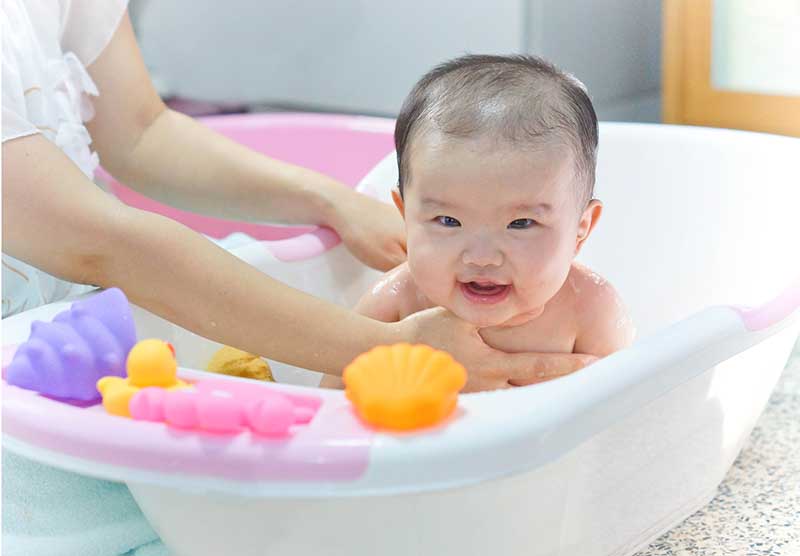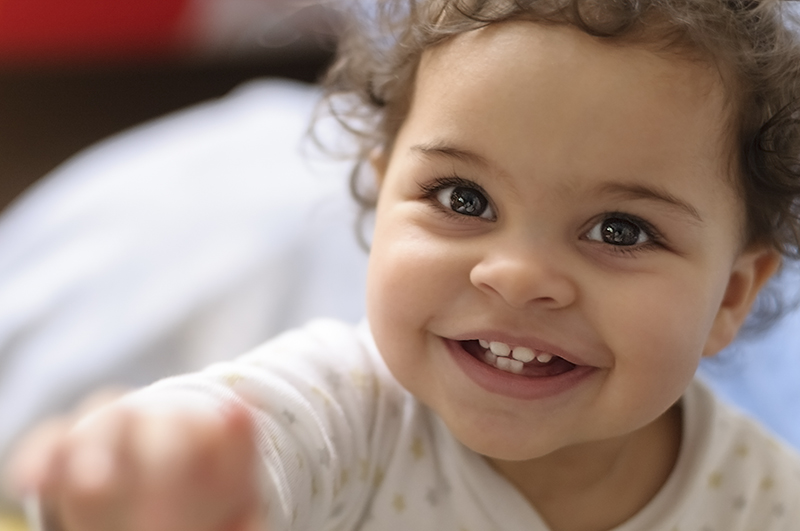Families For Life | Thinking: Toddlers

DID YOU KNOW?
Bath time is a good way to soothe your baby but it can also be a fantastic learning opportunity for your child. Learn how you can engage him during bath time.
READ MORE

Toddlers are beginning to understand more about life and themselves. They’re also starting to think things through and understand lots of new concepts. Here are some simple and fun play ideas for supporting your toddler’s cognitive development.
About toddler play and cognitive development
Play is vital for your toddler’s cognitive development – that is, your toddler’s ability to think, understand, communicate, make memories, imagine and work out what might happen next.
This is because play is one of the main ways that your toddler explores the world. Toddlers at play are experimenting, thinking, solving problems and learning all the time.
Spending time playing with your toddler is especially good for your toddler’s cognitive development. That’s because playing together builds your relationship and sends a simple but powerful message – you are important to me. This message is key to helping your toddler learn about who they are and where they fit in the world. It also gives your toddler confidence to keep exploring and learning about the world.
What to expect: cognitive development in toddlers
Your toddler will probably:
think you know what she’s thinking – not until she’s about three will your toddler realise that you actually don’t know what she’s thinking and feeling
be unable to separate what’s real and what’s pretend – for example, she might be easily frightened by monsters in cartoons
be curious and keen to experiment and explore unfamiliar things
be able to use words like ‘dark’, ‘loud’, ‘hard’ or ‘heavy’ in the right way, and understand their meaning by three years
enjoy exploring all five of her senses – sight, sound, taste, touch and smell
be able to follow simple instructions from 18 months
have favourite books, stories and songs – so be prepared for lots of requests to read or sing it ‘again’!
Your toddler is determined to try everything, even activities that might not be suitable for his age. He’s just trying to figure out how things work.
For example, at 8-16 months, your toddler will want to thoroughly explore all toys and objects within reach – banging, dropping, pushing and shaking them to see what happens. A safe home environment will give your child the freedom to explore without getting hurt.
Your child might now understand that there are groups of things in the world. By about 16 months, your toddler will sort objects into types – for example, by colour, shape or size – which helps with early maths concepts. Toys and household items like pegs and plastic cooking utensils are good for this kind of play.
Despite the huge amount they’re learning, toddlers don’t know how all the concepts fit together. For example, your child can see that things flush down the toilet. But toddlers don’t realise that they can’t accidentally be flushed down the toilet too. Or that if a leg rips off a favourite doll or teddy bear, the same doesn’t happen to a real person. These things could become real fears at this age.
Play ideas to support cognitive development in toddlers
Here are some everyday play ideas to support your child’s thinking and learning:
Help your toddler put together basic puzzles.
Provide lots of fun bath toys so your child can enjoy measuring, scooping and pouring.
Talk with your toddler, ask questions and respond to her questions. If your toddler asks ‘Why? Why? Why?’ all the time, she might be struggling to say what she really wants to know. Try asking your toddler what she thinks without always giving an answer.
Read books and recite nursery rhymes together. You can leave out words from your toddler’s favourite stories and ask your toddler to tell you what happens next.
Give your toddler things to sort, like different coloured blocks or balls, or different sized plastic cups and containers.
Give your toddler toys with buttons to push to make something happen.
Put together a box of materials for simple art and craft activities. This can include finger paint, crayons and paper, coloured chalk for drawing and writing on outdoor paths, scrap materials or playdough.
It’s a good idea to let your toddler take the lead more and more with play. Letting him take the lead lets him practise making decisions. It also helps to build confidence.
A healthy family lifestyle includes limits on screen time. Screen time includes time spent watching television and playing games on computers, mobile phones and tablets.
If you’re concerned about any aspect of your toddler’s development, it’s a good idea to discuss it with your child health professional, or your toddler’s caregiver or educator if she goes to an early childhood education and care service.
© raisingchildren.net.au, translated and adapted with permission
Explore more